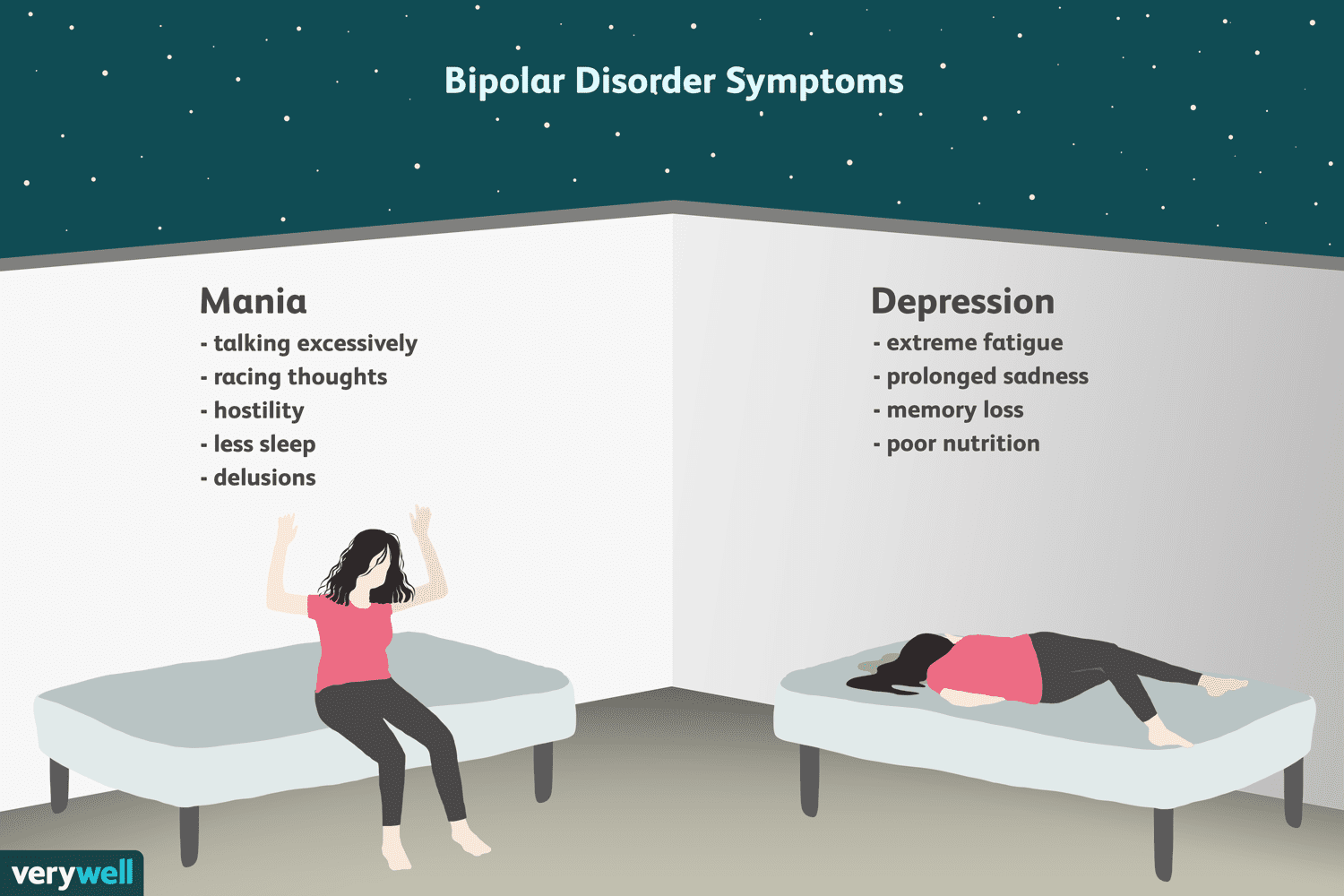Dating, like any noble pursuit, is best approached with honesty and bravery. There are a few different types of bipolar disorders, depending on the severity of your symptoms as well as how often and how long they come up.
With bipolar II, the type that I have, a person goes through patterns of hypomania a milder form of mania and depression. I was diagnosed inwhen I was 17, after my family and I grew concerned with how I behaved and my frequent outbursts, mood swings, racing thoughts, and recklessness.
Now, at 25, after years of cycling through doctors and doses, I am finally in a comfortable place with my treatment. That's because bipolar disorder is often an invisible disability even though it can also be a debilitating one. Before then, I proudly wore my diagnosis on disorder sleeve. To me, it felt like a personality trait that made me unique. This web page sharing, I felt like I was breaking down stereotypes and defying the stigma-riddled feeling that it was some shameful secret.
But after a series of relationships where my condition was often used to dismiss my feelings and oversexualize girl, it became clear just how damaging the stigma around bipolar disorder still is. I give them everything and save little for myself. Turns out, some aspects of falling in love could actually trigger mania for some people with bipolar disorder, says David Miklowitz, PhDa professor of psychiatry at the University of California, Los Angeles.
That can mostly be chalked up to changes in your routine that can be both delightful and disruptive. I'm sure most people can relate to this bipolar some level—when you're in that fun and exciting stage of a new relationship, your routines get thrown out the window in favor of impromptu dates and late-night phone calls. But for people with bipolar disorder, routines and regularity can be pretty crucial to managing the condition, explains Dr.
For me, the start of a relationship can bring on overthinking and under-sleeping, both of which make it harder for me to balance my moods. From personal experience, I can confirm that relationships of all kinds can affect—and be affected by—a mental health condition like bipolar disorder. I ended up disclosing my diagnosis the first time we spoke. As soon as I heard myself girl it, I felt like I probably should have given that disclosure more thought. I figured it was something people don't casually come out with, but I was still following that defiant dating that makes me feel powerful.
Immediately, he revealed his own mental health struggles, and it gave me a sense of relief. I thought, Wow, here's someone who could understand. Shortly after we made our relationship official, things started getting serious. Falling in love triggered a new hypomanic state for me, which, at first, he seemed to love.
My exes all have. Then there were the physical aspects of our relationship. While it was never explicitly said, I felt like sharing my bipolar diagnosis enabled a narrative he created about me. I even once had a therapist tell me that bipolar women were the click here. This recurring narrative made me feel like an object.
Then the relationship got dark, and I got quiet. No matter what, it always felt like my diagnosis was being used against me and was to blame for everything that went wrong.

The manic and depressive states can make it hard for people like me to feel grounded and trust their own emotions in an intimate relationship, says therapist Melanie Shapiro, LCSW. And this tracks. There was a time, particularly in that relationship, where I thought being attached to someone would solve all my problems.
I thought relationships made you whole and meant you were happy.
Navigating A Relationship With A Bipolar Girlfriend
Part of that came from being scared to be alone, dating of how being single would force me to be alone with myself and deal with a mental illness that I still didn't understand. And then there's the worst fear people have disclosing a diagnosis: that we'll be labeled "crazy. From then on, I decided to stop telling casual dates and acquaintances about my diagnosis until I felt absolutely sure I could trust them. But I know that With need some security before I do. Still, With know that if I wait too long, a partner could find out about my diagnosis before I'm ready if they spot my medication or inevitably witness me having an episode, lying on the bathroom floor with the lights off for hours, see more them for days at a time, or talking obsessively and overthinking.
Miklowtiz says. That would be too easy, right? At first, it was terrifying. I worried that no one would look at me the same ever again. That used to tick me off, but now I find a certain satisfaction and freedom in people knowing where my head is at. I do exhibit bipolar symptoms, and it feels better when loved ones know why.
The idea of opening up again is scary. Not everyone will dating site open-minded, but I feel more prepared now to deal with whatever https://search-by-image.info/dating-belfast.php I get. Wondermind does not provide medical advice, diagnosis, or treatment. Any information published on this website or by this brand is not intended as a replacement for medical advice.
On a first date, you wouldn’t know I live with bipolar disorder.
Always consult a qualified health or mental health professional with any questions or concerns about your mental health. Bipolar Link Copied By Brielle Diskin. Want more mental health advice and relatable reads? Join the club! Email Required. How to Actually Be a Happier Person. You good? Sign up "disorder" our newsletter to get expert advice and candid convos delivered right to your inbox. By subscribing to our email newsletter, you agree to and acknowledge that you have read our Privacy Policy and Terms and Conditions.